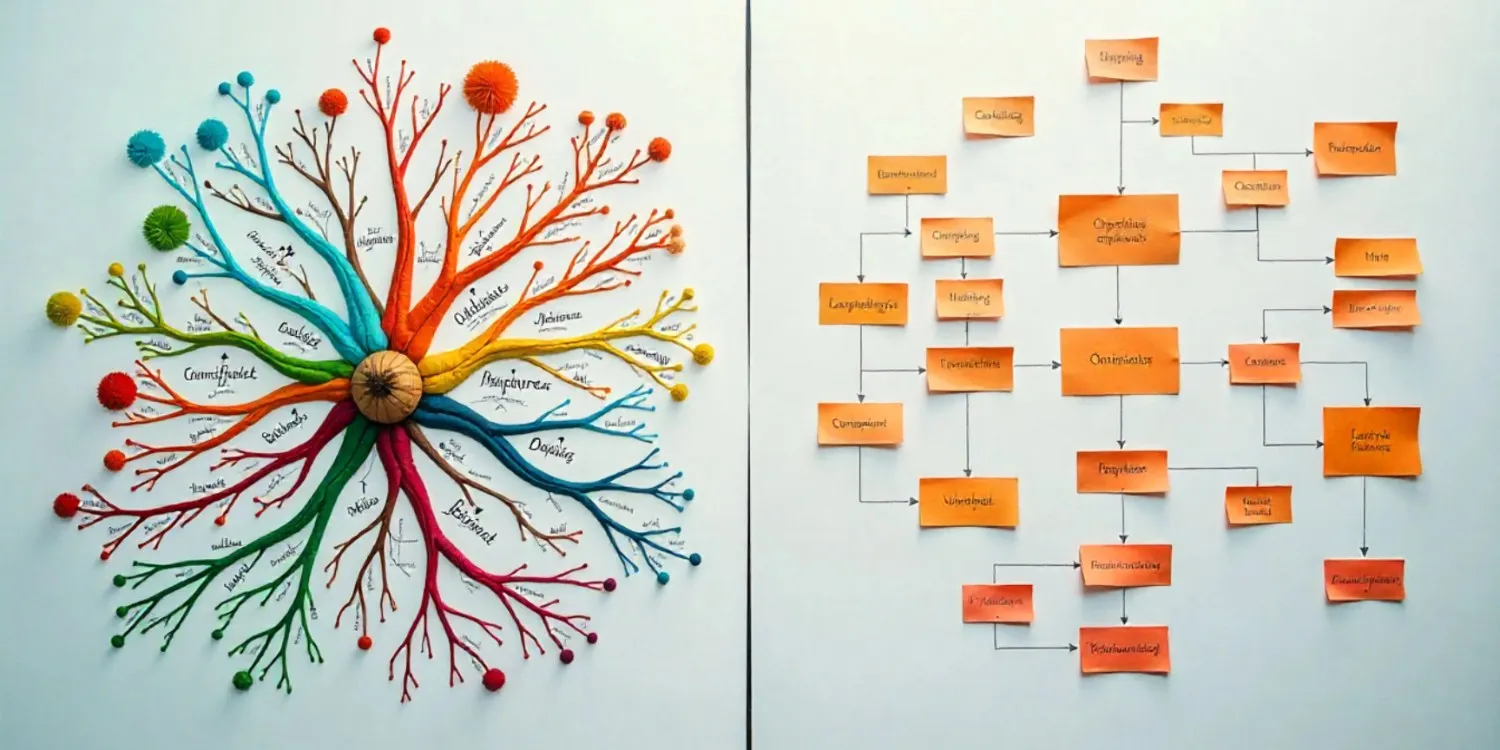Love doesn’t fade—it just needs fresh eyes. Rediscover the spark in your committed relationship with empathy, better communication, fun, and small daily shifts that bring you closer.
Get a Fresh Perspective in Your Committed Relationship!

Love is a beautiful journey, isn’t it? It starts with fireworks, late-night talks, and that undeniable flutter in your stomach. But what happens when the fireworks dim, the talks become more about chores than dreams, and the flutter gives way to a comfortable, perhaps even predictable, hum? For many couples in committed relationships, that initial spark can, over time, feel a little…stuck. A bit routine. It’s not that the love is gone, far from it. It’s just that the perspective might need a little polish, a breath of fresh air.
Think of it like this: You move into a beautiful new house. At first, you notice every detail—the intricate molding, the way the light hits the window in the morning, the unique floorboards. You walk through each room with a sense of wonder. But after living there for years, you stop seeing those details. You’re just… there. You take the beauty for granted. Your relationship can be the same. The familiarity that was once comforting can become a backdrop you no longer truly see. Getting a fresh perspective is like stepping outside the house and looking at it with the wonder of a new visitor, noticing all the beauty you’d started to take for granted. This isn’t about finding a new partner; it’s about rediscovering the magic with the one you already have, by consciously choosing to see your relationship, and your partner, with a fresh set of eyes. And trust me, it’s a journey well worth taking.

Simple Body weight Exercises You Can Start Immediately
No gym needed! Simple body weight moves like squats, push-ups & planks boost strength, energy & flexibility. Start today, stay consistent!
Read More..
Why Relationships Sometimes Lose Their Spark
It’s easy to blame the usual suspects: time, kids, jobs, the general grind of life. And while these certainly play a role, the erosion of “freshness” in a committed relationship often stems from more subtle, insidious factors.

The Comfort Trap: Initially, comfort is wonderful! It’s what we crave. But too much comfort, without conscious effort, can lead to complacency. We stop trying to impress, to surprise, to actively connect, because we assume our partner will always be there, always understand. This comfort morphs into taking each other for granted. You stop saying “thank you” for the small things, like them making the bed or getting you a glass of water, because you just expect it.
The Routine Monster: Life requires routine. Work, meals, errands – they all need structure. But when your relationship becomes part of that rigid routine, without any deviation or spontaneity, it can feel like a chore rather than a joy. Date nights become Tuesday movie night, not an exciting adventure.
Unspoken Expectations: Over time, we develop silent rules and expectations. “They should know I need help with the dishes.” “He should know I want a compliment on my new haircut.” When these expectations aren’t met, we feel hurt and let down, and resentment begins to build, even though our partner had no idea what we were thinking.
Stress Spillover: The pressures of work, finances, or family can easily spill over into your relationship. We often come home to our partners with our emotional cups already depleted, leaving little patience, empathy, or energy for meaningful connection. Our partner, unfortunately, becomes the safest place to offload our frustrations, even if they aren’t the cause.
Also Read: How To Feel Better After a Breakup
Signs Your Relationship Is Crying Out for a Shift in Perspective
How do you know if your relationship needs this kind of gentle nudge, this fresh look? It’s not always dramatic fights or a sudden break-up. Often, it’s a slow, quiet erosion.
- Frequent Irritability and Annoyance: Small things that never used to bother you now grate on your nerves. The way they chew, the way they leave their clothes, a particular habit—it all feels amplified. You find yourself feeling agitated by their presence more often than not.
- Lack of Excitement or Anticipation: You no longer look forward to spending time together, or weekend plans feel like a default rather than an eagerly awaited event. The “spark” has been replaced by a quiet “hmm.”
- Repetitive Arguments: You find yourselves having the same arguments over and over again, never quite resolving anything. It’s like a broken record, and neither of you knows how to change the tune.
- Emotional Distance: You might be physically present, sharing a home, but emotionally, you feel miles apart. There’s less sharing of deep thoughts, fewer intimate conversations, and a general sense of being on separate islands.
- Feeling Taken for Granted: One or both partners feel their efforts aren’t noticed or appreciated. The “thank yous” become rarer, and acts of service feel more like obligations.
If any of these resonate, don’t despair! Recognizing these signs is the crucial first step. It means you’re ready to embrace a new perspective.
Depersonalizing Your Partner’s Behavior: Don’t Take It Personally
This is perhaps one of the most transformative shifts in perspective you can make. It’s so easy, when our partner is stressed, tired, or upset, to internalize their reactions. If they snap at us, we immediately think, “They’re mad at me,” or “They don’t appreciate me.” But what if their behavior isn’t about you at all?
Think about it: when you’re under immense pressure, do you always act like your best self? Probably not. You might be short-tempered, forgetful, or withdrawn. Your partner is no different.
Let’s imagine a scenario: Sarah comes home from a long, stressful day at her corporate job. She’s been dealing with a difficult client and a looming deadline. When her husband, Mark, asks her a simple question about dinner plans, she snaps, “I don’t know, just figure it out!” Mark’s immediate, natural reaction is to feel hurt and defensive. He might think, “Wow, she’s so ungrateful. I just asked a simple question and she’s attacking me.”
A fresh perspective here would be for Mark to pause. Instead of taking it personally, he could ask himself, “What might be going on in her world right now?” He knows her work has been particularly demanding. He can choose to see her reaction not as a personal attack, but as a byproduct of her stress. He might then respond with empathy, “You seem really stressed. Is everything okay?” This opens a door for connection, rather than building a wall of defensiveness. This doesn’t mean excusing genuinely hurtful behavior, but it’s about giving your partner the benefit of the doubt and seeking to understand the root cause before reacting.
The Power of Self-Talk and Reframing Negative Thoughts in Conflicts
Our internal monologue shapes our reality. When conflicts arise, or when we perceive a problem in our relationship, our self-talk can either escalate the situation or help us navigate it constructively.
Let’s revisit the scenario. As Mark walks away feeling hurt, his internal monologue could go one of two ways.
- Negative Self-Talk (Default): “She always does this. She never appreciates anything I do. I always have to walk on eggshells. This relationship is hopeless.” (Notice how quickly this escalates from a single incident to a sweeping generalization about the entire relationship). This kind of self-talk fuels resentment.
- Reframed Self-Talk (Fresh Perspective): “Okay, she’s clearly having a tough day. It’s frustrating, but it’s not about me. How can I help her, or at least not make her day worse? Maybe I’ll order her favorite takeout instead of asking her to cook.”
Reframing isn’t about ignoring problems; it’s about approaching them from a place of strength, understanding, and partnership, rather than accusation and resentment. Focus on solutions, not blame. Shift your internal monologue from “Whose fault is this?” to “How can we solve this together?” This immediately changes the energy of the conversation, even before you’ve said a word to your partner.
Don’t Miss These
Empathy and Emotional Intelligence: The Bedrock of Connection
Empathy is the ability to understand and share the feelings of another. Emotional intelligence (EQ) is the capacity to understand and manage your own emotions, and to perceive and influence the emotions of others. Both are absolutely crucial for a thriving, fresh relationship.
When your partner expresses a feeling, try to truly imagine what it would be like to be in their situation. What are they experiencing? What are their fears, hopes, frustrations? You don’t have to agree with their solution to understand their feeling.
Then, practice active listening. This isn’t just about waiting for your turn to speak. It’s about fully focusing on what your partner is saying, both verbally and non-verbally. Reflect back what you hear: “So, if I’m understanding you correctly, you’re feeling overwhelmed by the new project at work and you’re worried about missing deadlines?” This validates their feelings and ensures you’ve understood them. By managing your own emotions and showing vulnerability, you create a powerful sanctuary of understanding and connection.
Communication Strategies to Express Needs Without Arguments
Effective communication isn’t about avoiding arguments; it’s about arguing better and expressing needs before they fester.
- The “I Feel” Statement Power: Instead of “You always ignore me when you’re on your phone!” try “I feel a little lonely and disconnected when you’re on your phone during our conversations.” This focuses on your experience and avoids accusation, making your partner less defensive.
- Express Needs Proactively: Don’t wait for resentment to build. If something is bothering you or if you have a need, address it calmly and proactively. “Hey, I’ve been feeling like we haven’t had much quality time lately. How about we plan a tech-free evening this week?”
- Avoid Blame and Criticism: These are relationship killers. Focus on the behavior, not the person. Instead of “You’re so messy,” try “I feel overwhelmed when there are clothes on the floor.” This is a minor shift in wording with a major positive impact on the conversation.
- Take a Breather: If a discussion gets too heated, agree to take a 20-30 minute break. Step away, cool down, and return when you can discuss more calmly. This prevents saying things you’ll regret.
How to Bring Fun, Playfulness, and Adventure into Your Relationship
Novelty is a powerful antidote to routine. Actively injecting fun and new experiences can rekindle that spark.
- Learning Together: Take a dance class, a cooking class, or a painting workshop. Learning something new side-by-side creates new memories and reinforces a sense of teamwork and shared discovery. It reminds you of the early days when everything was an adventure.
- Surprise & Spontaneity: Plan a surprise date night, leave a loving note, or bring home their favorite snack. These small, unexpected gestures show you’re thinking of them, and that’s a powerful feeling.
- Travel & Exploration: Even if it’s not a big international trip, explore your local area with fresh eyes. Visit a new café, explore a historical site, or take a short weekend getaway. The change of scenery can work wonders.
- Recreate First Dates/Memories: Go back to the place where you first met, or your first date. Talk about your memories and how far you’ve come. It’s a beautiful way to reconnect with your shared history.
Balancing “Me Time” and “We Time”
One of the biggest misconceptions is that a healthy relationship means you do everything together. In reality, a fresh, vibrant relationship is built on two whole individuals who have rich, independent lives.
Personal Growth: The time you spend on your own, pursuing a hobby, learning a new skill, or simply enjoying solitude, isn’t a threat to your relationship. It’s an investment in yourself. When you have things you are passionate about, you bring that renewed energy and excitement back to your relationship.
Balancing Act: Consciously create space for both. Schedule individual time to recharge and pursue your passions. Then, make “we time” intentional and high-quality. A few hours of undivided, meaningful connection is far more valuable than a whole weekend spent physically together but emotionally distant, both of you scrolling on your phones.
Simple but Powerful Couple Exercises
- Relationship Check-ins: Once a week, set aside 20-30 minutes to talk about your relationship, not just the logistics of life. What’s going well? What could be better? How are you both feeling about the connection? This creates a safe, non-confrontational space to address issues before they become problems.
- Gratitude Journaling: At the end of each day, or at least a few times a week, each of you write down three things you are grateful for about your partner. Share them with each other. This simple exercise trains your brain to look for the positive and to actively appreciate your partner.
- Tech-Free Quality Time: Implement a “no phones at the dinner table” rule or a “tech-free evening” once a week. This simple boundary forces you to be present with each other, leading to deeper conversations and more meaningful connection.
When to Seek External Help
Sometimes, a fresh perspective requires an external guide. There is absolutely no shame in seeking help. A couples therapist or coach is not a sign of failure; it’s a sign of a deep commitment to making your relationship work. If you find yourselves in a repetitive cycle of arguments, if you feel disconnected and unable to communicate effectively, or if you’re struggling to move past a significant challenge, a professional can provide the tools and a neutral space to help you navigate it. They can help you break old patterns and learn new, healthier ways of relating to each other.
Also Read: Want a Healthy Life? Start With These 5 Morning Rituals.
Conclusion: Take One Fresh Step Today
Your relationship is a living, breathing entity that needs care and attention to thrive. It’s easy to get lost in the routine, to forget the beauty that first drew you together. But the good news is, you can start today. You don’t need a grand gesture or a major life change to get a fresh perspective.
Try one small thing. Depersonalize your partner’s behavior just once. Reframe one negative thought. Plan one surprise date night. Write down one thing you’re grateful for about them. The smallest shifts can create a ripple effect, reminding you that the love is still there—it just needs a fresh set of eyes to see it. It’s time to stop coasting on autopilot and start actively driving your relationship forward. The magic is still there, waiting for you to rediscover it. All it takes is the courage to look at each other, and your relationship, with a fresh perspective.
You May Also Like
Why Your Shine Deserves the Perfect Jewelry This blog explores how jewelry is more than fashion—it’s self-expression, confidence, and celebration...
Get a Fresh Perspective in Your Committed Relationship! Love doesn’t fade—it just needs fresh eyes. Rediscover the spark in your...
Embark on the last great adventure to Antarctica—discover the best time to visit, wildlife, costs, tips, and soul-stirring journeys in the world’s icy...

It’s Okay to Take a Little Time Away From Your Child – Don’t Feel Guilty!
boostify305@gmail.com September 8, 2025
It’s Okay to Take a Little Time Away From Your…
Read More
Things Fade Away, But Memories Last Forever
boostify305@gmail.com August 21, 2025
Why Memories Outshine Material Things Have you ever looked at…
Read More
How a No-Oil Diet Can Transform Your Body and Skin
boostify305@gmail.com August 11, 2025
Imagine waking up one morning, looking in the mirror, and…
Read More
How Much Are You Doing to Keep Your Brain Healthy?
boostify305@gmail.com September 14, 2025
How Much Are You Doing to Keep Your Brain Healthy?…
Read More
Want a Healthy Life? Start With These 5 Morning Rituals.
boostify305@gmail.com September 3, 2025
Want a Healthy Life? Start With These 5 Morning Rituals…
Read More
Simple Body weight Exercises You Can Start Immediately
boostify305@gmail.com August 25, 2025
Have you ever thought about starting a workout routine but…
Read More
Home and Travel: Why You Can’t Cherish One Without the Other
boostify305@gmail.com September 11, 2025
Home and Travel: Why You Can’t Cherish One Without the…
Read More
The Difference Between Mind Map and Concept Map Explained
boostify305@gmail.com September 7, 2025
The Difference Between Mind Map and Concept Map Explained Mind…
Read More
When Endless Scrolling Consumes Your Life
boostify305@gmail.com August 29, 2025
It starts with a simple notification. You pick up your…
Read More






